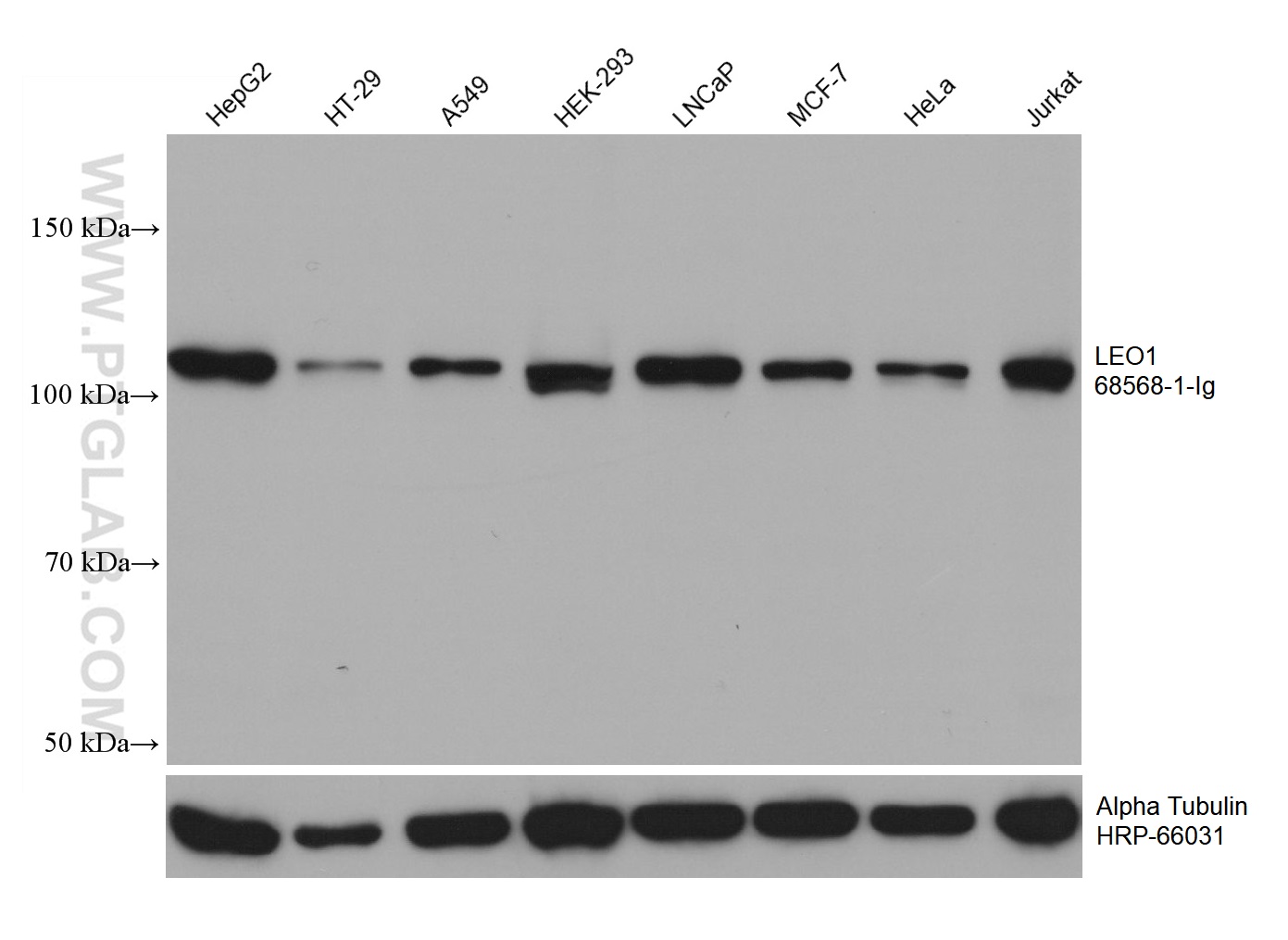验证数据展示
经过测试的应用
| Positive WB detected in | HepG2 cells, HT-29 cells, A549 cells, HEK-293 cells, LNCaP cells, MCF-7 cells, Hela cells, Jurkat cells |
推荐稀释比
| 应用 | 推荐稀释比 |
|---|---|
| Western Blot (WB) | WB : 1:5000-1:50000 |
| It is recommended that this reagent should be titrated in each testing system to obtain optimal results. | |
| Sample-dependent, Check data in validation data gallery. | |
产品信息
68568-1-Ig targets LEO1 in WB, ELISA applications and shows reactivity with Human samples.
| 经测试应用 | WB, ELISA Application Description |
| 经测试反应性 | Human |
| 免疫原 | LEO1 fusion protein Ag33577 种属同源性预测 |
| 宿主/亚型 | Mouse / IgG1 |
| 抗体类别 | Monoclonal |
| 产品类型 | Antibody |
| 全称 | Leo1, Paf1/RNA polymerase II complex component, homolog (S. cerevisiae) |
| 别名 | LEO1, RDL |
| 计算分子量 | 666 aa, 75 kDa |
| 观测分子量 | 105 kDa |
| GenBank蛋白编号 | BC018147 |
| 基因名称 | LEO1 |
| Gene ID (NCBI) | 123169 |
| RRID | AB_3085270 |
| 偶联类型 | Unconjugated |
| 形式 | Liquid |
| 纯化方式 | Protein G purification |
| UNIPROT ID | Q8WVC0 |
| 储存缓冲液 | PBS with 0.02% sodium azide and 50% glycerol , pH 7.3 |
| 储存条件 | Store at -20°C. Stable for one year after shipment. Aliquoting is unnecessary for -20oC storage. |
背景介绍
LEO1, also named as RNA polymerase-associated protein LEO1, is a 666 amino acid protein, which belongs to the LEO1 family. LEO1 is a component of the PAF1 complex (PAF1C) which has multiple functions during transcription by RNA polymerase II and is implicated in regulation of development and maintenance of embryonic stem cell pluripotency. The calculated molecular weight of LEO1 is 75 kDa, but the modified LEO1 protein is about 105 kDa (PMID: 15632063).
实验方案
| Product Specific Protocols | |
|---|---|
| WB protocol for LEO1 antibody 68568-1-Ig | Download protocol |
| Standard Protocols | |
|---|---|
| Click here to view our Standard Protocols |
